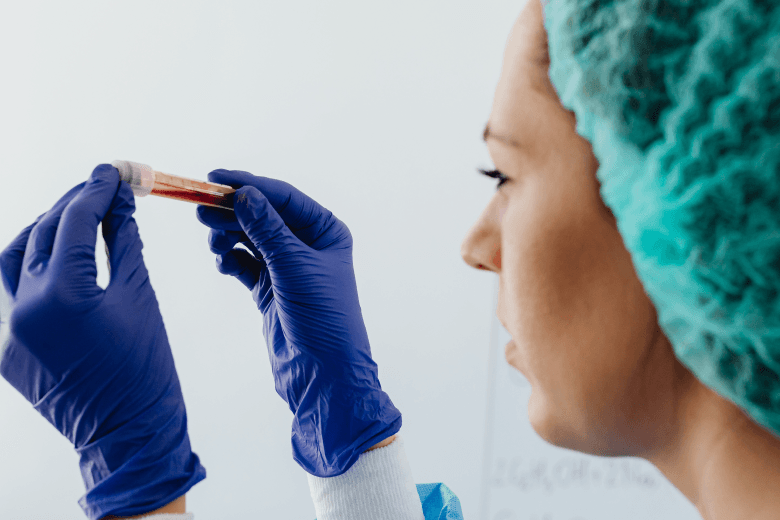If you thought that just by getting vaccinated against COVID-19, “detoxing” from time to time, and having regular exercise and meditation sessions, you are healthier than ever, we regret telling you no. According to the World Health Organization, health “is a state of complete physical, mental and social well-being and not merely the absence of disease or infirmity.” And in the word “complete” there is no doubt that we can see the sexual part contemplated, right?
However, it’s pretty common for some people to leave sexual health and this “conditions” or “diseases” part out of the self-care “equation”, not because of its lack of importance but because of a bunch of fears derived from prejudices, feelings of shame or guilt that only apart us from health, feed stigma and, precisely, reflect how much a comprehensive sexual education with a positive approach in relation to sexuality and its enjoyment, is necessary.
How nice would it be to freely say “doctor, I feel discomfort in my anus and testicles” with the same ease we have for saying “doctor, my throat hurts, and I have been coughing a lot, could I get a checkup?”.
So let’s talk about how important it is to perform timely screening tests for sexually transmitted infections (STIs).
Why is it important to perform STI tests?
Basically, because it is a key part of your comprehensive health care. Because it is a way of loving yourself, of knowing how your body is and how you can keep a state of well-being, either by continuing your usual self-care or, if applicable, by receiving some specific treatment or care. Without a doubt, this takes a lot of effort and courage. However, remembering that it is a great act of self-love, which will allow you to know how you are, how you can cultivate your health and continue enjoying your body, your life, your sexual practices and your relationships, can surely help you start.
Who needs to be tested for STIs?
Stigma and misinformation feed the belief that these tests are for “certain people” or “vulnerable populations”. While it is true that there are people who, for different reasons, may be exposed to sexually transmitted infections more often, in reality, anyone can be exposed to getting and/or transmitting STIs.
If we start assuming that anyone who has had any unprotected sexual practice or has been in direct contact with someone else’s sexual body fluids (semen, vaginal lubrication, blood) would require a checkup for sexually transmitted infections, we can confirm that many of us — teens, young adults, adults, elderly; regardless of our sex, gender identity or sexual orientation — should include in our health care “kit” a set of STIs tests, right?
Note: You might like our blog “Young Nigerians Talk About Routine STI/STD Testing”
When to get STI tests?
The ideal or recommended scenarios for performing a check-up for early detection of sexually transmitted infections are the following:
Periodic assessment or routine check-up: the same way you schedule dental cleanings, deworming, general clinical tests (blood and urine, for example) or even plan your annual “detox”, you can include every 3 to 6 months, or at least once a year, getting rapid tests to detect STIs, this without necessarily being involved in any exposure situation.
After unprotected sexual practices: after situations in which unprotected sexual intercourse occurred (forced or consensual, but unprotected after all), it is essential to do what is best for you and your health. A first step, for example, if a sexual violence situation has occurred, is to go to the nearest health care facility to receive emergency medical care (and if desired, psychological as well), which includes HIV post-exposure prophylaxis (PEP) and, if required, emergency contraception. For other types of infections, it is advisable to consult which tests are available and, based on this, find out how much time should pass (window period) so the tests can offer reliable results.
I’ve made up my mind to do an STI test, what are the next steps?
Whether it is a “routine check-up” or a special appointment due to circumstances that require it, these are the steps we recommend you take for your sexual health:
Once the decision is made, put it into action: from researching about the tests or about the centers you can assist to, to asking someone to support, assist or accompany you, do not let the decision “cool off” and keep your gaze firmly on the target, which is to take care of your body and your health as a whole.
Find out the places you can visit: there are public health services, as well as civil society organizations, that offer free testing; there are also private centers, such as laboratories or screening centers, which often offer affordable packages and excellent accompaniment and counseling services that make the experience more pleasant.
Book your appointment or ask for more reports if needed
Assist to your medical appointments: there are no pretexts, it is as important as a work meeting or a romantic date with the love of your life. An appointment with your health is equally or more important than any other appointment.
Take advantage
Once there, get the most out of the experience! Don’t be shy about asking everything you need to know about sexual health, infections, how to protect yourself, etc. The professionals who offer these services have enough training to provide you with all the information you need to take care of your sexual health.
Put your finger and think of something nice
Yes, most early detection rapid tests require a small prick on your finger in order to obtain some blood drops, which the tests can interact with chemically to offer the applicable results. Try to think that it might be an uncomfortable or painful moment, but it is for the sake of a greater good: your health.
Check your results
Once the finger prick has passed, after a few minutes or in some cases a little more time, the tests results should be handed to you. It is important that you review your results, make sure that your personal data and tests performed are correct, and that the results are provided. If you have any questions about the results, keep in mind that it is your right to request a more detailed explanation.
Return in a 3 to 6 months period, or at least once a year: include this practice in your comprehensive health “routine”, as well as in your self-care and self-love space.
Remember: there is no health without sexual health.
Note: Take a look at our blog about STIs.
References:
https://www.who.int/es/about/governance/constitution
Do you have something to share? Leave your comments below, contact us on our social media platforms: Facebook, Instagram, Twitter, YouTube and TikTok, send us an email to info@findmymethod.org. For more information on contraception, visit findmymethod.org.

